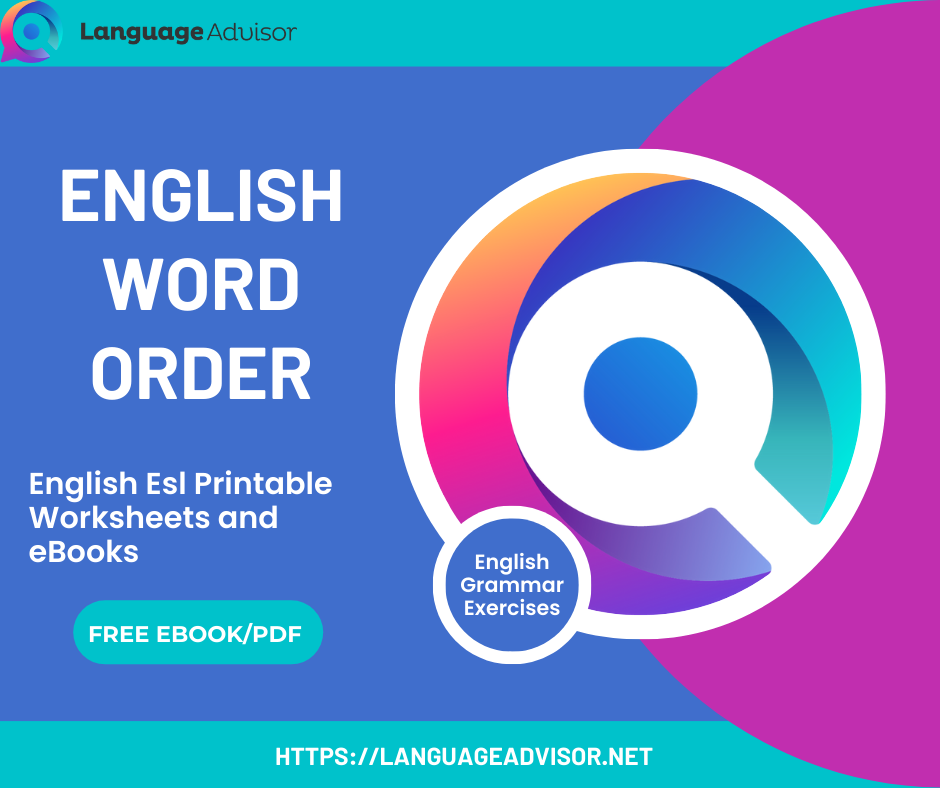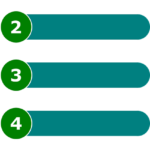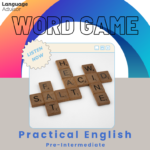English Word Order. English grammar with exercises. Free eBook and Free printable PDF. Esl printable Worksheets
English Word Order

English Word Order
The word order is very rigid in English. The most important rule is Subject – Predicate – Object. We usually use this word order to form an English sentence.
Richard bought a pair of skis.
He met his best friend.
In questions an auxiliary verb is put at the beginning of the question.
Did Richard buy a pair of skis? Could he meet his best friend?
The English word order is inverted in questions. The subject changes its place in a question. Also, English questions usually begin with a verb or a helping verb if the verb is complex.
For example
Verb + Subject + object
Can you finish the assignment?
Did you go to work?
Inversion
An inverted sentence switches the placement of the verb before the subject of a sentence as if in a question. Here are some examples of inverted sentences:
- Not only is he difficult to understand, but he is also funny.
- Never have I understood less about women.
- Scarcely have they been on time.
Inverted sentences are required with certain grammar structures, or used as a means of sentences stress or emphasis. Follow the instructions below to learn how and when inverted sentences are used in English.
Inverted Sentence = Question Form
The question form (auxiliary + subject + main verb) takes the place of the standard positive sentence structure (i.e. He goes to work every day) in inverted sentences.
- Not only do I enjoy classical music, but I also have a season ticket to the symphony.
- Seldom has the boss been so upset!
- So difficult has science became that only specialists can fathom its complexities.
In this case, the question form is substituted for standard sentence structure in a statement. Generally, an inversion is used to stress the uniqueness of an event and begins with a negative.
Sometimes conditional forms are inverted as a means of sounding more formal. In this case, the conditional if is dropped and the inverted forms take the place of the if clause.
- Had he understood the problem, he wouldn’t have committed those mistakes.
- Should he decide to come, please telephone.
- Had I known, I would have helped him.

English Word Order
Exercises
WORD ORDER IN A SENTENCE
EXERCISE 1.
Choose the correct answer to each question.
What birthday gift did you choose for your mother?
I her sent some flowers.
I sent some flowers her.
I sent her some flowers.
What kind of sport do you enjoy doing?
I go every winter skiing in Austria.
I go skiing in Austria every winter.
I go in Austria skiing every winter.
Have you ever seen a famous person?
Yes, I saw Zucchero last summer at the Rome airport.
Yes, I saw last summer Zucchero at the Rome airport.
Is Martina still your friend?
No. Never I want to see her again.
No. I never want to see her again.
No. Never again I want to see her.
Where did you get those pills?
The pharmacist gave them me this morning.
I got them in the pharmacy this morning.
Where can I find the correct spellings of “straight” and “through”?
In the dictionary can easily find them.
You can easily find them in the dictionary.
You easily can find them in the dictionary.
What did Roger say?
He asked me to pass him the salt.
He asked if I would pass the salt him.
Is Roger a good basketball player?
Not really. Never he passes me the ball.
Not really. He never passes the ball to me.
SENTENCE INVERSION
EXERCISE 1.
Rewrite the following sentences using the inversion
e.g. If you had told me that you were arriving, I would have come to the station.
Had you told me that you were arriving, I would have come to the station.
- If you need help, call me.
- If he were a genius, he would be able to solve this problem.
- We had hardly finished our work, when our boss told us we had to stay longer.
- Only when she heard my voice, she realised it was me.
- You didn’t only lie to me, you lied to everybody.
- I don’t like either reading or writing. Nor/I…
- They would like to go to the seaside on holiday. So/we…
- There is no doubt about her telling the truth. = No doubt
- I have been asked such a thing never before.
- If I had had enough money, I would have bought a boat.

All downloads are in PDF format
BROWSE THE EBOOK ONLINE OR DOWNLOAD THE PDF FOR FREE






